Find Help
More Items From Ergsy search
-
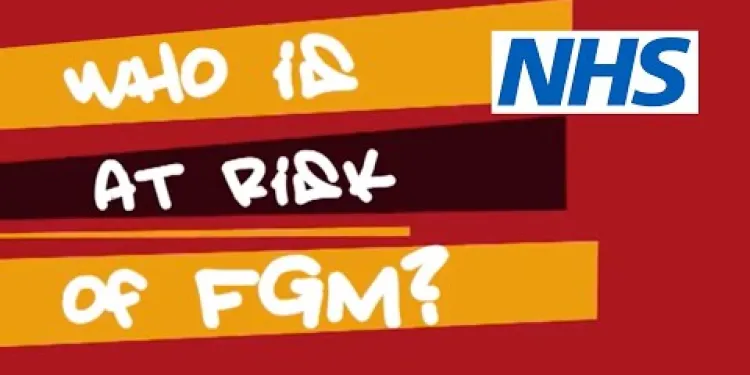
Female genital mutilation (FGM) | NHS
Relevance: 100%
-
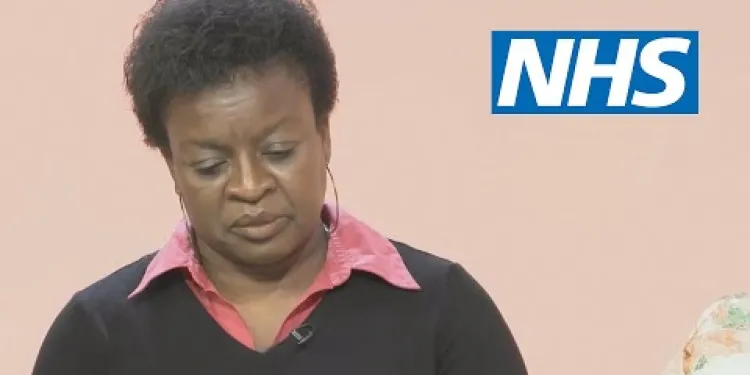
Female Genital Mutilation: The Facts | NHS
Relevance: 98%
-
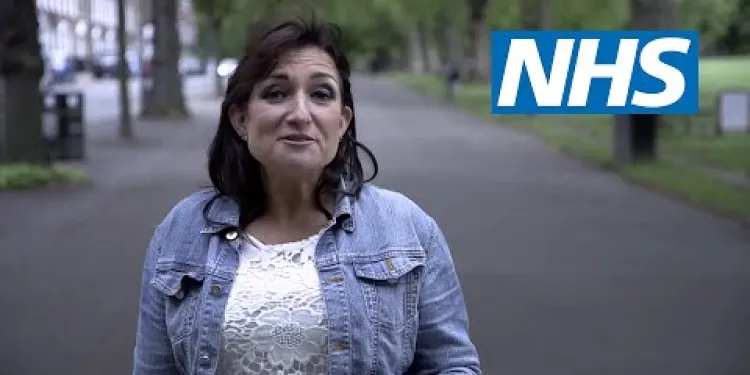
Women talking about their personal experiences of female genital mutilation (FGM) | NHS
Relevance: 81%
-
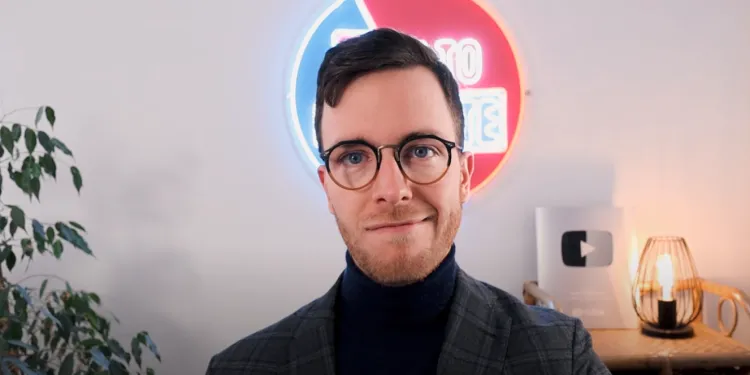
Female infertility explained
Relevance: 37%
-
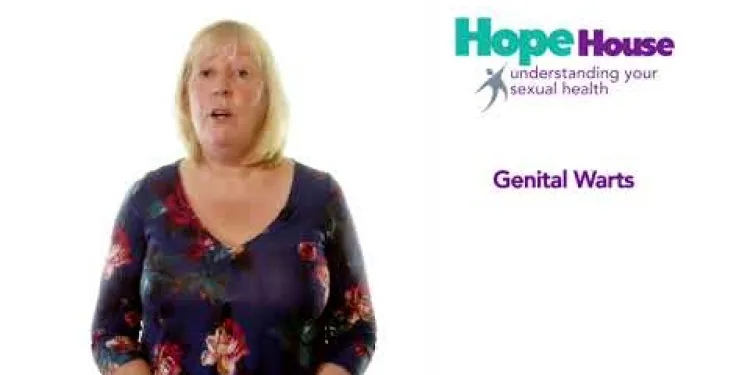
Understanding Your Sexual Health - Genital Warts
Relevance: 36%
-
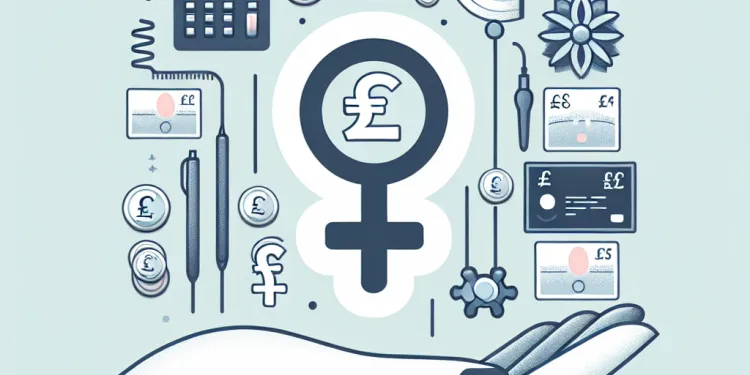
What are the reasons for female infertility?
Relevance: 32%
-

Can gonorrhoea infect areas other than the genital organs?
Relevance: 30%
-

Do male and female brains age differently regarding dementia risk?
Relevance: 25%
-

What is Honour Based Abuse?
Relevance: 20%
-
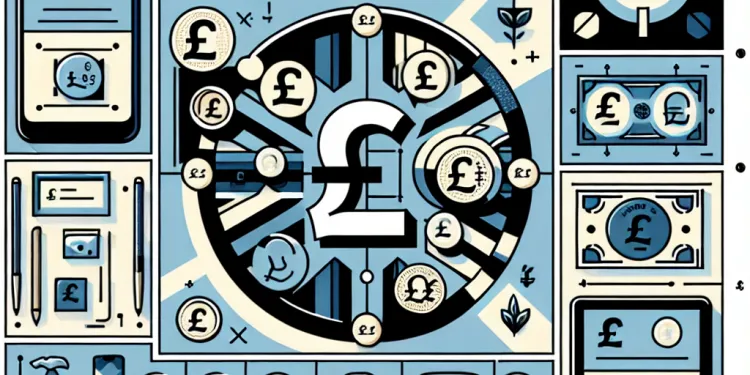
Is honour based abuse a cultural practice?
Relevance: 17%
-
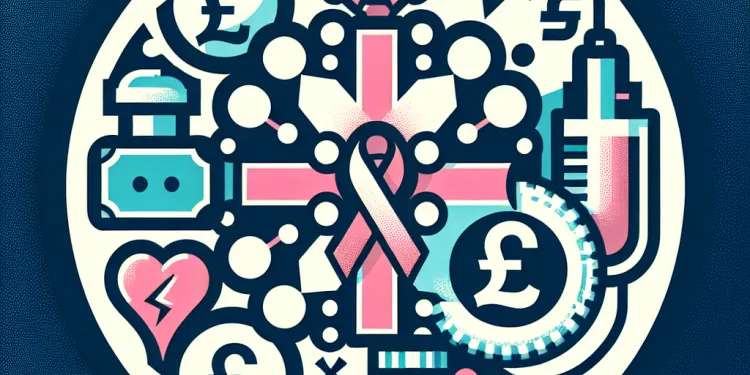
Are there symptoms of an HPV infection?
Relevance: 15%
-
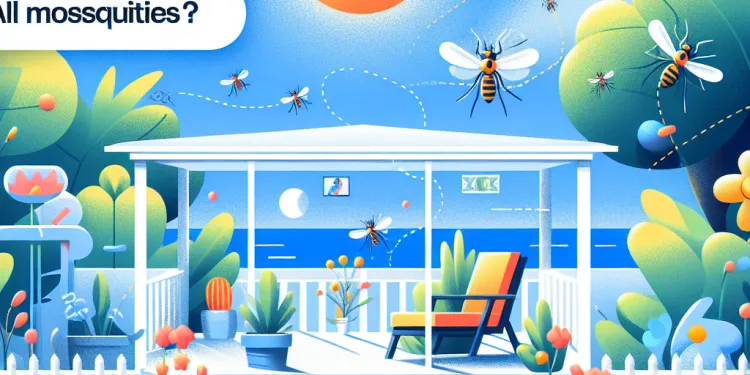
Do all mosquitoes bite humans?
Relevance: 15%
-
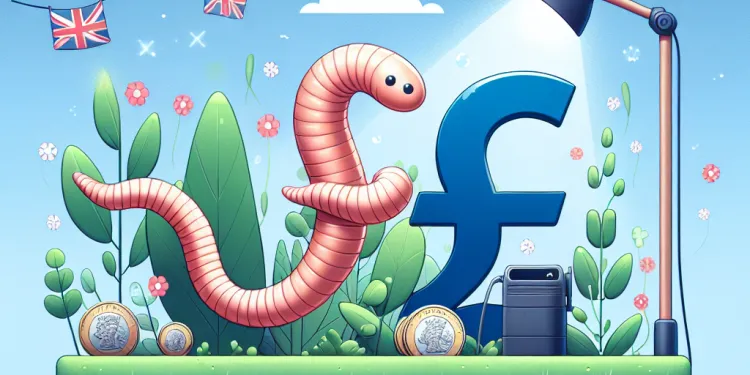
How do screw worms reproduce?
Relevance: 13%
-
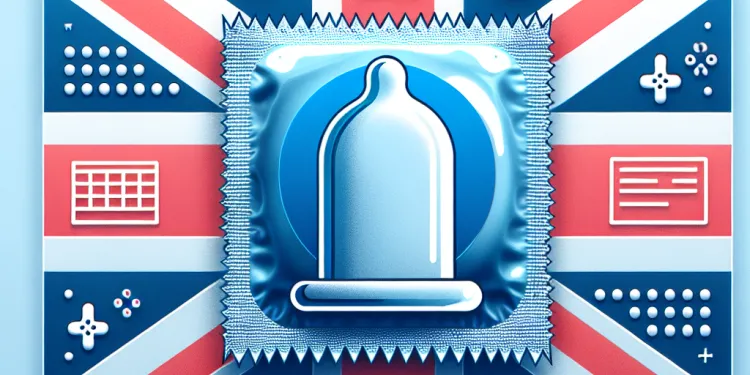
Can using condoms fully protect against HPV?
Relevance: 12%
-

What is the HPV Virus?
Relevance: 12%
-
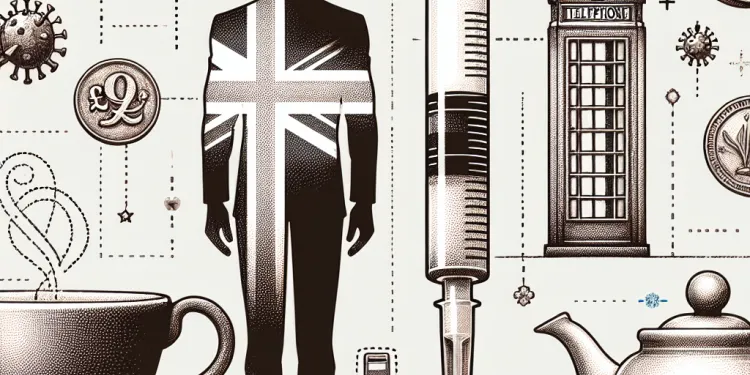
Do men need the HPV vaccine?
Relevance: 12%
-

Can HPV affect both men and women?
Relevance: 12%
-

Can HPV be treated?
Relevance: 11%
-

Understanding Your Sexual Health - Herpes
Relevance: 11%
-
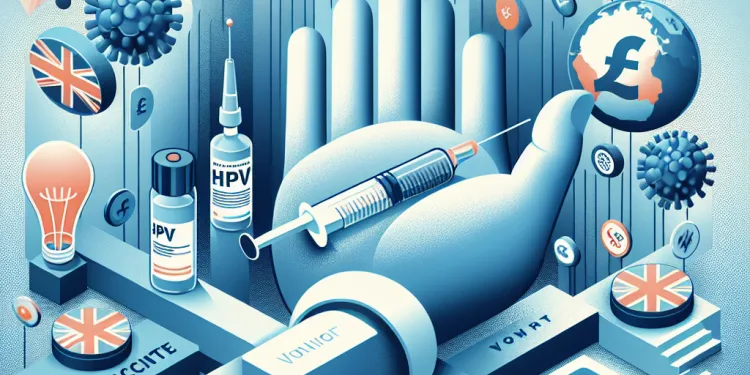
Who should get the HPV vaccine?
Relevance: 11%
-

What health problems can HPV cause?
Relevance: 11%
-
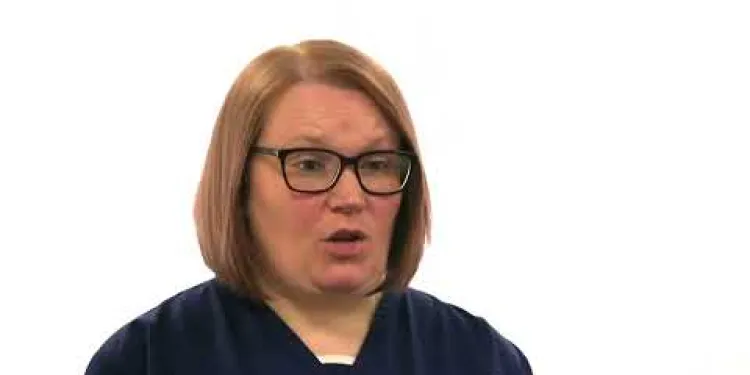
Vulval Cancer
Relevance: 11%
-

How common is HPV?
Relevance: 10%
-

What is Gonorrhoea?
Relevance: 10%
-
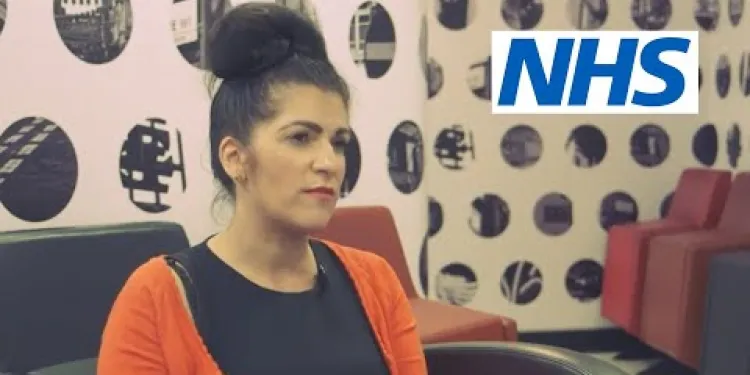
Cervical screening for women who have experienced sexual assault | NHS
Relevance: 10%
-
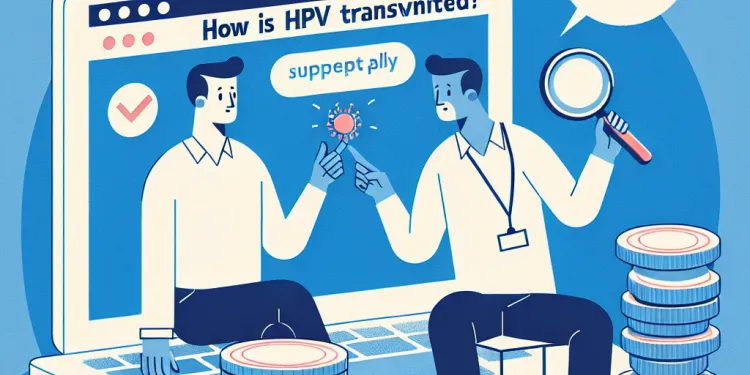
How is HPV transmitted?
Relevance: 10%
-

What are the reasons for male infertility?
Relevance: 10%
-
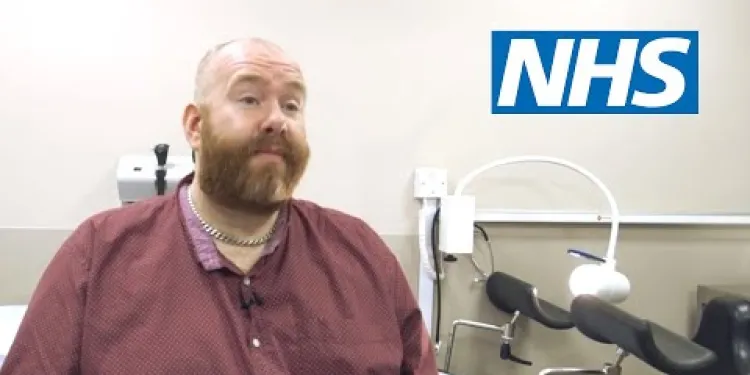
Cervical screening for transgender men | NHS
Relevance: 9%
-
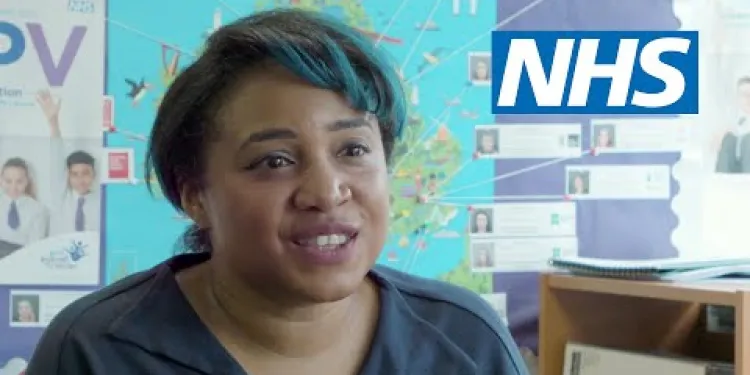
What is the year 8 HPV vaccine? | NHS
Relevance: 9%
-

Are there any long-term effects of gonorrhoea?
Relevance: 9%
-
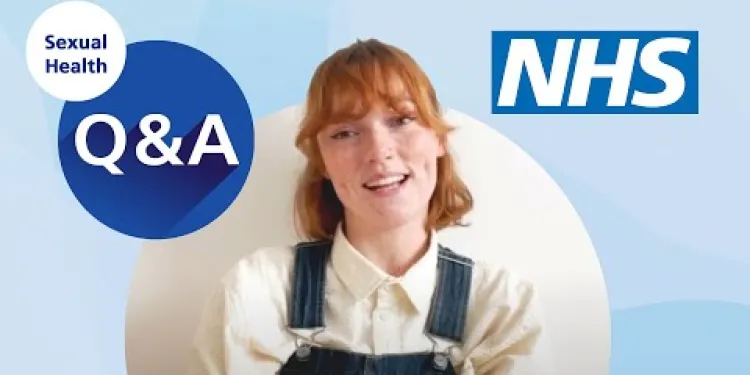
Sexually transmitted infections STIs
Relevance: 9%
-

How do lice lay nits?
Relevance: 9%
-

How do screw worms infest their hosts?
Relevance: 9%
-
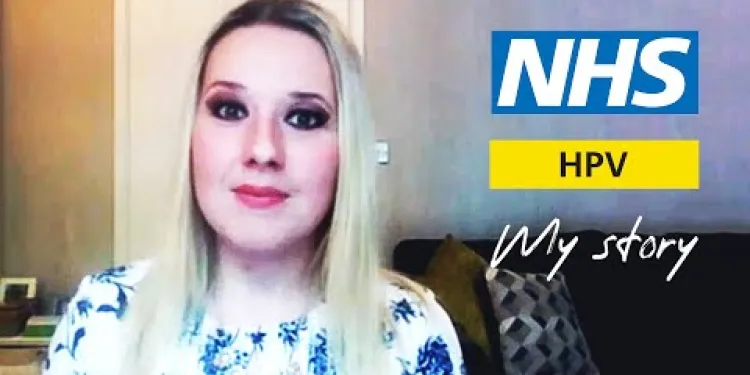
HPV - My Story | NHS
Relevance: 8%
-

How can HPV be prevented?
Relevance: 8%
-
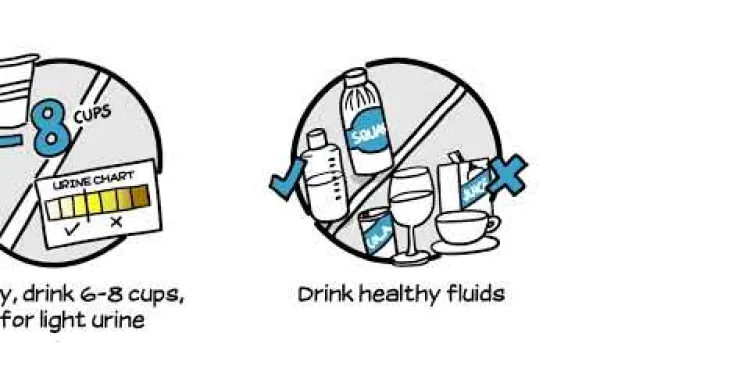
Avoiding infections with urinary incontinence
Relevance: 8%
-

What is chlamydia?
Relevance: 8%
-

How long does it take for nits to hatch?
Relevance: 8%
-
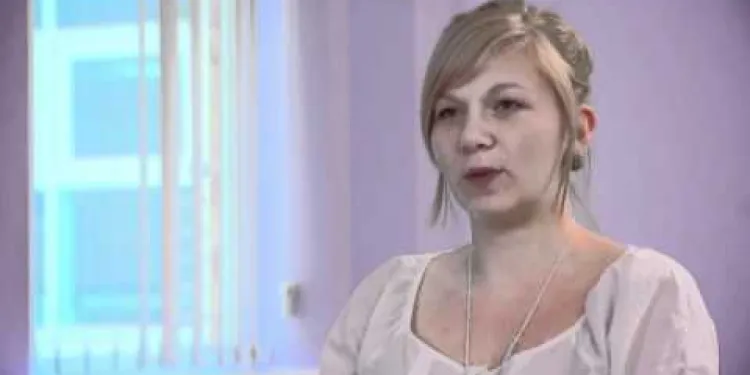
Reactive arthritis
Relevance: 8%
-
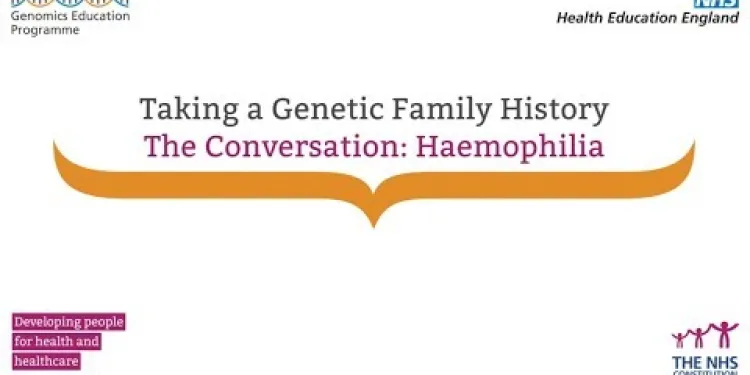
Haemophilia
Relevance: 8%
Female Genital Mutilation: The Facts | NHS
Introduction to Female Genital Mutilation (FGM)
Female Genital Mutilation (FGM) is a harmful cultural practice involving the partial or total removal of external female genitalia for non-medical reasons. It has severe consequences on the health and well-being of girls and women, both physically and emotionally. Recognized internationally as a violation of human rights, FGM is illegal in the United Kingdom under the Female Genital Mutilation Act 2003.
Types of FGM
FGM is categorized into four main types:
- Type 1 (Clitoridectomy): Partial or total removal of the clitoris.
- Type 2 (Excision): Removal of the clitoris and the labia minora.
- Type 3 (Infibulation): Narrowing of the vaginal opening by creating a seal, with or without removal of the clitoris.
- Type 4: All other harmful procedures to the female genitalia for non-medical purposes (e.g., pricking, piercing).
Health Risks and Consequences
FGM carries numerous health risks, including severe pain, infections, prolonged bleeding, childbirth complications, and fatal consequences. Long-term effects can include chronic pain, menstrual problems, sexual difficulties, and psychological trauma. The practice undermines the basic rights of girls and women to health, security, and physical integrity.
Legal Framework and Support in the UK
The UK has stringent laws against FGM, making it illegal to perform FGM domestically or abroad on UK nationals and permanent residents. Healthcare professionals, educators, and social workers are obligated to report known cases of FGM in girls under 18. If you are concerned or suspect someone may be at risk, you can reach out to the NHS FGM Helpline or visit the NHS website for more information.
Support Services and Resources
The NHS offers specialized services and support for those affected by FGM. This includes medical treatment, psychological support, and safeguarding services. Individuals can access help confidentially and are encouraged to seek support without fear of legal repercussions. Additionally, numerous organizations and charities across the UK are dedicated to raising awareness and supporting survivors of FGM.
Conclusion
FGM is a grave human rights violation with lifelong consequences. It is crucial to be informed and vigilant in efforts to eradicate this practice. Support, treatment, and preventive resources are available through the NHS and other organizations, ensuring that survivors and those at risk receive the necessary help and protection.
Female Genital Mutilation: The Facts | NHS
Introduction to Female Genital Mutilation (FGM)
Female Genital Mutilation (FGM) is when parts of a girl's body are cut for cultural reasons. It is very harmful and can hurt girls and women both physically and emotionally. FGM is not allowed in the UK. It is against the law because it hurts human rights. The law that bans FGM in the UK is called the Female Genital Mutilation Act 2003.
Types of FGM
There are four main types of FGM:
- Type 1 (Clitoridectomy): Removing part or all of the clitoris.
- Type 2 (Excision): Removing the clitoris and the inner lips of the vagina.
- Type 3 (Infibulation): Making the vaginal opening smaller by sealing it. This can happen with or without cutting the clitoris.
- Type 4: Any other harmful actions to the female genitals, like pricking or piercing, that are done for non-medical reasons.
Health Risks and Consequences
FGM can cause a lot of health problems such as very bad pain, infections, too much bleeding, and problems during childbirth. It can also cause death. Long-term effects include ongoing pain, menstrual issues, problems during sex, and emotional distress. FGM takes away girls' and women's rights to health and safety.
Legal Framework and Support in the UK
In the UK, it is illegal to do FGM or take someone abroad for FGM. This law applies to people living in the UK. Teachers, doctors, and social workers must report if they know a girl under 18 who has had FGM. If you are worried or think someone might be at risk, you can contact the NHS FGM Helpline. More information is available on the NHS website.
Support Services and Resources
The NHS has special services for people affected by FGM. This includes medical care and emotional support. You can ask for help privately and safely. Many organizations in the UK work to raise awareness and support people who have been through FGM.
Conclusion
FGM is a serious violation of human rights and causes lifelong problems. It is important to learn about FGM and work to stop it. The NHS and other organizations offer help and protection for those affected by or at risk of FGM.
Frequently Asked Questions
What is Female Genital Mutilation (FGM)?
FGM involves the partial or total removal of external female genitalia or other injury to the female genital organs for non-medical reasons.
Why is FGM performed?
FGM is often performed for cultural, religious, or social reasons within families and communities, often believed to be a way to prepare a girl for adulthood and marriage.
Is FGM illegal in the UK?
Yes, FGM is illegal in the UK. It is a criminal offence to perform, aid, or procure the carrying out of FGM, and failing to protect a girl from the risk of FGM is also illegal.
What are the health risks associated with FGM?
FGM can cause severe pain, excessive bleeding, infections, problems with urination, complications in childbirth, and long-term psychological and physical effects.
At what age is FGM typically performed?
FGM is typically performed on girls between infancy and age 15, but it can happen to women at any age.
What are the signs that a girl might be at risk of FGM?
Signs may include being taken abroad suddenly, prolonged absence from school, a girl referring to a 'special procedure', or anxiety about a forthcoming holiday.
What should you do if you suspect someone is at risk of FGM?
You should contact the police or social services immediately. Healthcare professionals also have a duty to report suspected cases of FGM.
What support is available for those affected by FGM?
Support includes medical aid, counseling, and specialist FGM clinics available within the NHS, as well as organizations dedicated to supporting affected women and girls.
Can women who have undergone FGM get help during childbirth?
Yes, healthcare professionals are trained to assist women who have undergone FGM during labor and delivery, providing necessary medical support and care.
Are there any long-term psychological effects of FGM?
Yes, FGM can have long-term psychological impacts, including depression, anxiety, and post-traumatic stress disorder (PTSD).
What is the role of schools in protecting girls from FGM?
Schools have a duty to educate pupils about FGM and safeguard girls by recognizing the signs and reporting concerns to the appropriate authorities.
How prevalent is FGM in the UK?
While exact figures are hard to determine, it's estimated that tens of thousands of women and girls in the UK have undergone FGM or are at risk.
What are the different types of FGM?
There are four main types: Clitoridectomy, Excision, Infibulation, and other harmful procedures to the female genitalia for non-medical reasons.
Is there any cultural justification for FGM?
While some cultures believe FGM is a rite of passage or a means of ensuring purity, it is widely recognized as a human rights violation with no health benefits.
What resources are available for education about FGM?
The NHS and various charities provide educational resources on FGM for schools, healthcare providers, and the general public to raise awareness and prevent the practice.
What is Female Genital Mutilation (FGM)?
Female Genital Mutilation (FGM) means hurting or cutting a girl's private parts. This can make her very sick or hurt her feelings. FGM is not safe and is against the law in many places. If you or someone you know is worried about FGM, talk to a trusted adult or contact help services. It's important to know that FGM is not okay.
Support Tools: You can use helplines, talk to a teacher, or a doctor for more help and information. They can answer your questions and keep you safe.
FGM means cutting or hurting the private parts of a girl or woman. It is not needed for health reasons.
Why is FGM done?
FGM stands for Female Genital Mutilation. It means cutting or changing a girl's private parts for non-medical reasons.
Some people do FGM because it is a tradition in their community. They believe it will make a girl clean or ready for marriage.
FGM is harmful and can cause big health problems. It is important to learn about FGM and say no to it.
If you hear about FGM or are worried, talk to a trusted adult like a teacher or doctor. They can help.
Sometimes, families and communities do FGM for cultural, religious, or social reasons. They think it helps prepare a girl for being a grown-up and getting married.
Is FGM against the law in the UK?
Yes, FGM is against the law in the UK.
FGM stands for Female Genital Mutilation.
It is when someone hurts a girl's private parts.
The law says that no one is allowed to do this.
If someone tries to do FGM, they can get in big trouble.
If you need help, you can talk to a teacher or call a helpline.
Yes, FGM is against the law in the UK. It is a crime to do FGM, help someone do it, or to arrange for it to happen. Not protecting a girl from the risk of FGM is also against the law.
What health problems can happen because of FGM?
FGM can cause a lot of pain. People might bleed too much. It can make it hard to pee. It can also cause problems when having a baby. It might hurt the body and mind for a long time.
How old are girls when FGM usually happens?
FGM usually happens to girls between 0 and 15 years old.
For more help, you can:
- Talk to a teacher or trusted adult.
- Read books and look at pictures to understand more.
- Use apps that tell stories with pictures and sounds.
FGM is usually done to girls from when they are babies up to when they are 15 years old. But it can also happen to women at any age.
What are the signs that a girl might be at risk of FGM?
How can you tell if a girl might be at risk of FGM?
- She talks about a special ceremony where her family will take her away.
- She mentions going on a long trip to visit family or friends.
- Her parents say she needs to be more grown-up.
- There are conversations about her getting married soon.
- She suddenly leaves school or misses classes for a while.
If you feel worried, you can:
- Talk to someone you trust, like a teacher or a friend.
- Call a helpline to ask for help.
- Use an online tool to learn more about FGM.
Signs to look out for can be:
- A child going on a trip far away very quickly.
- A child not coming to school for a long time.
- A girl talking about a 'special procedure'.
- A child feeling worried about a coming holiday.
Here are some tools that can help:
- Talk to a trusted adult if you notice any of these signs.
- Write down what you see or hear that makes you feel worried.
- Use pictures or drawings to explain your feelings if talking is difficult.
What to do if you think someone is in danger of FGM?
If you think a girl might have FGM, tell someone who can help. This could be a teacher, nurse, or the police.
FGM is against the law. It can hurt girls very badly. Make sure to talk to someone who can keep the girl safe.
You can also call a special help line for advice. They can tell you what to do next.
Remember, it is important to act quickly. The sooner you tell someone, the better it is for the girl's safety.
You should tell the police or social services right away. Doctors and nurses must also tell if they think FGM has happened.
What help is there for people affected by FGM?
FGM means Female Genital Mutilation. It is when part or all of a girl’s private parts are cut for no medical reason. This can hurt her and make her feel sad or scared.
There are people and places that can help if someone has been affected by FGM:
- Doctors and Nurses: They can check for health problems and help with the pain.
- Counselors: They can talk with you about your feelings and help you feel better.
- Support Groups: These are places where you can meet other people who have gone through the same thing. You can share your stories and feel understood.
If you or someone you know needs help because of FGM, you can:
- Call a helpline for advice and support.
- Talk to a teacher, social worker, or police officer you trust.
- Use apps or websites that give information and support.
Remember, you are not alone. There are people who want to help you.
There is help if you need it. You can get medical help, talk to someone about your feelings, and visit special clinics in the NHS. There are also groups that help women and girls who have gone through this.
Can women who have had FGM get help when having a baby?
Yes, women who have had FGM can get help when they are having a baby. They can talk to doctors and nurses who know how to help them. It is important to tell the doctor or nurse about FGM early, so they can make a plan for a safe birth.
Here are some things that can help:
- Talk to your doctor or midwife about FGM as soon as you are pregnant.
- Ask for a special plan to help you during the birth.
- Get support from a counselor if you feel worried or scared.
- Use books or videos for getting ready to have a baby.
Yes, doctors and nurses know how to help women who have had FGM when they are having a baby. They give the right medical care and support.
Does FGM harm how people feel and think later?
Yes, FGM can hurt the mind for a long time. It can cause sadness, worry, and bad memories that won't go away.
How do schools help keep girls safe from FGM?
Schools must teach children about FGM. They need to keep girls safe by knowing the signs of FGM and telling the right people if they are worried.
How common is FGM in the UK?
FGM stands for Female Genital Mutilation. It means hurting a girl's private parts without a medical reason.
It's against the law in the UK.
People want to know how many girls it happens to in the UK.
Tools like picture charts or talking to a helper can make this easier to understand.
It is hard to know the exact number, but many people think that tens of thousands of women and girls in the UK have had FGM or might have it happen to them.
FGM stands for Female Genital Mutilation. It is when someone's body is hurt on purpose, and it should not happen.
If you or someone you know needs help, you can talk to a trusted adult, call a helpline, or use apps that offer support for people in need.
What are the different types of FGM?
FGM means Female Genital Mutilation. It is when parts of a girl's private area are cut or changed. There are 4 main types of FGM:
- Type 1 - Cutting the clitoris: This is when the small part of the private area, called the clitoris, is cut.
- Type 2 - Cutting the clitoris and labia: This is when the clitoris and the inner folds of the private area, called the labia, are cut.
- Type 3 - Narrowing the opening: This is when the private area is sewn up, leaving a small hole.
- Type 4 - Other harmful ways: This can be things like pricking, piercing, or burning the private area.
FGM is harmful and can cause lots of problems for girls and women. If you want to learn more, ask someone you trust, like a doctor or a teacher. There are also support lines you can call to get help.
There are four main kinds:
1. Clitoridectomy: This is when part or all of the clitoris is removed.
2. Excision: This is when the clitoris and the inner folds of the vagina are cut away.
3. Infibulation: This is when the vagina is narrowed by cutting and sewing the area.
4. Other harmful things: These are other harmful actions done to female private parts for no medical reason.
Always ask for help if you don't understand something or need someone to explain things in a different way.
Is FGM okay in any culture?
FGM stands for Female Genital Mutilation.
FGM is when someone's private parts are cut or hurt on purpose.
Some people say it's part of their traditions or beliefs.
But hurting someone is not right in any culture.
If you're unsure or have questions, talk to a trusted adult or a teacher.
It can help to use tools like picture books or videos to learn more.
Some people think FGM is an important ritual or way to stay pure. But most people agree it is wrong. It hurts human rights and does not help health.
What can help us learn about FGM?
Here are some simple ways to understand FGM better:
- Books and Leaflets: Look for books or leaflets that talk about FGM. They can have pictures and easy words.
- Videos: Watch short videos that explain FGM in a simple way.
- Websites: Visit websites made for kids and young people that talk about FGM.
- Ask a Teacher: You can ask your teacher to explain FGM to you.
- Family and Friends: Talk to people you trust, like family or friends, who can help you learn.
These tools can make learning about FGM easier and clearer.
The NHS and different charities have information about FGM. They share these with schools, doctors, and everyone else. This helps people learn and stop FGM.
Here are some tips to make it easier to understand:
- Try reading one sentence at a time.
- Ask someone if you need help with a word.
- You can use tools like text-to-speech to listen instead of reading.
Useful Links
This website offers general information and is not a substitute for professional advice.
Always seek guidance from qualified professionals.
If you have any medical concerns or need urgent help, contact a healthcare professional or emergency services immediately.
Some of this content was generated with AI assistance. We’ve done our best to keep it accurate, helpful, and human-friendly.
- Ergsy carfully checks the information in the videos we provide here.
- Videos shown by Youtube after a video has completed, have NOT been reviewed by ERGSY.
- To view, click the arrow in centre of video.
- Most of the videos you find here will have subtitles and/or closed captions available.
- You may need to turn these on, and choose your preferred language.
- Go to the video you'd like to watch.
- If closed captions (CC) are available, settings will be visible on the bottom right of the video player.
- To turn on Captions, click settings .
- To turn off Captions, click settings again.
More Items From Ergsy search
-

Female genital mutilation (FGM) | NHS
Relevance: 100%
-

Female Genital Mutilation: The Facts | NHS
Relevance: 98%
-

Women talking about their personal experiences of female genital mutilation (FGM) | NHS
Relevance: 81%
-

Female infertility explained
Relevance: 37%
-

Understanding Your Sexual Health - Genital Warts
Relevance: 36%
-

What are the reasons for female infertility?
Relevance: 32%
-

Can gonorrhoea infect areas other than the genital organs?
Relevance: 30%
-

Do male and female brains age differently regarding dementia risk?
Relevance: 25%
-

What is Honour Based Abuse?
Relevance: 20%
-

Is honour based abuse a cultural practice?
Relevance: 17%
-

Are there symptoms of an HPV infection?
Relevance: 15%
-

Do all mosquitoes bite humans?
Relevance: 15%
-

How do screw worms reproduce?
Relevance: 13%
-

Can using condoms fully protect against HPV?
Relevance: 12%
-

What is the HPV Virus?
Relevance: 12%
-

Do men need the HPV vaccine?
Relevance: 12%
-

Can HPV affect both men and women?
Relevance: 12%
-

Can HPV be treated?
Relevance: 11%
-

Understanding Your Sexual Health - Herpes
Relevance: 11%
-

Who should get the HPV vaccine?
Relevance: 11%
-

What health problems can HPV cause?
Relevance: 11%
-

Vulval Cancer
Relevance: 11%
-

How common is HPV?
Relevance: 10%
-

What is Gonorrhoea?
Relevance: 10%
-

Cervical screening for women who have experienced sexual assault | NHS
Relevance: 10%
-

How is HPV transmitted?
Relevance: 10%
-

What are the reasons for male infertility?
Relevance: 10%
-

Cervical screening for transgender men | NHS
Relevance: 9%
-

What is the year 8 HPV vaccine? | NHS
Relevance: 9%
-

Are there any long-term effects of gonorrhoea?
Relevance: 9%
-

Sexually transmitted infections STIs
Relevance: 9%
-

How do lice lay nits?
Relevance: 9%
-

How do screw worms infest their hosts?
Relevance: 9%
-

HPV - My Story | NHS
Relevance: 8%
-

How can HPV be prevented?
Relevance: 8%
-

Avoiding infections with urinary incontinence
Relevance: 8%
-

What is chlamydia?
Relevance: 8%
-

How long does it take for nits to hatch?
Relevance: 8%
-

Reactive arthritis
Relevance: 8%
-

Haemophilia
Relevance: 8%


